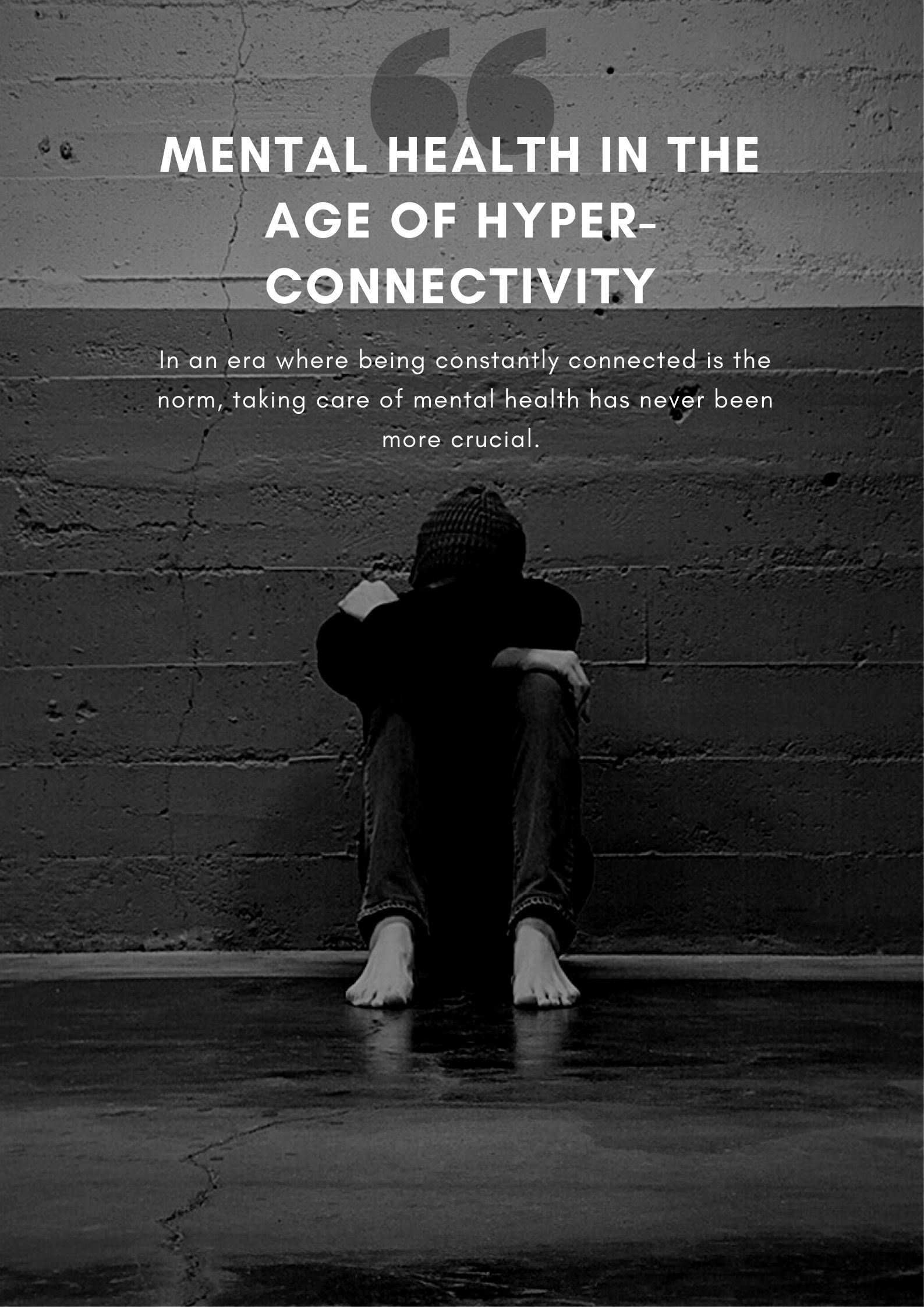Mental Health in the Age of Hyper-Connectivity In today’s fast-paced digital world, staying connected has never been easier—or more overwhelming. With smartphones, social media, and instant messaging dominating daily life, the line between the virtual and real world continues to blur. While technology offers countless conveniences, it also brings new challenges to our emotional and mental well-being. This raises an important question: how is hyper-connectivity impacting mental health?
What is Hyper-Connectivity?
Hyper-connectivity refers to the constant state of being linked through digital devices. Whether it’s checking emails, scrolling social feeds, joining Zoom calls, or responding to messages, many people feel tethered to their screens nearly 24/7. While this level of access supports efficiency and real-time communication, it often contributes to stress, anxiety, and burnout.
The Mental Health Toll of Always Being Online
1. Increased Anxiety and Stress
Constant notifications, digital noise, and pressure to stay updated can lead to information overload. People feel anxious when they miss a message or fail to respond quickly. The fear of missing out (FOMO) further increases stress levels, especially among young adults and teens.
2. Sleep Disruptions
Screen time, especially before bed, interferes with sleep patterns. The blue light emitted by phones and laptops disrupts the body’s natural circadian rhythm. Poor sleep is directly linked to mood disorders, irritability, and long-term mental health issues like depression.
3. Reduced Focus and Productivity
While digital tools are designed to help us multitask, frequent interruptions often reduce focus. Jumping from app to app can lead to mental fatigue, making it harder to concentrate on deep work or meaningful tasks.
4. Isolation Despite Connection
Ironically, while we are more connected digitally, many feel lonelier than ever. Online interactions lack the depth and warmth of in-person connections. This superficial connectivity can leave individuals feeling emotionally unfulfilled and isolated.
Social Media and Mental Health
Social media plays a significant role in shaping how we view ourselves and others. Platforms like Instagram, Facebook, and TikTok often present filtered realities—highlight reels that rarely show the full picture of life. Constant exposure to curated content can lead to:
· Low self-esteem: Comparing oneself to others can create feelings of inadequacy.
· Body image issues: Unrealistic beauty standards promoted online contribute to dissatisfaction and eating disorders.
· Cyberbullying: Online harassment can lead to severe emotional distress, especially in teenagers.
Strategies to Protect Mental Well-being
While we can’t eliminate digital technology from our lives, we can take steps to manage its impact on our mental health:
1. Set Digital Boundaries
Create tech-free zones, such as during meals or the first hour after waking up. Limiting screen time helps reduce stress and promotes presence in daily life.
2. Practice Mindful Usage
Be intentional with your screen time. Ask yourself if your digital activity is serving a purpose or simply filling time. Mindful scrolling can reduce the negative emotional effects of overuse.
3. Prioritize Offline Connections
Make time for face-to-face interactions. Real conversations offer emotional depth and a stronger sense of support than text-based communication.
4. Take Regular Digital Detoxes
Unplugging for a day or even a few hours can reset your mental state. Use this time to reconnect with hobbies, nature, and personal reflection.
5. Seek Professional Support
If hyper-connectivity is affecting your mental health, don’t hesitate to speak with a mental health professional. Counseling, therapy, and support groups can offer practical tools to manage stress and anxiety.
Conclusion
In an era where being constantly connected is the norm, taking care of mental health has never been more crucial. While technology enhances communication and accessibility, it also introduces risks that require mindful management. By setting boundaries and prioritizing mental well-being, we can harness the benefits of a connected world without sacrificing our emotional health.
- Info@salihaonlineacademy.com
- Chaman Zar Colony, Rawalpindi
- Sunrise At: 5:15 AM
- Sunset At: 4:50 PM
- Let’s Talk +923301790195


Leave A Comment